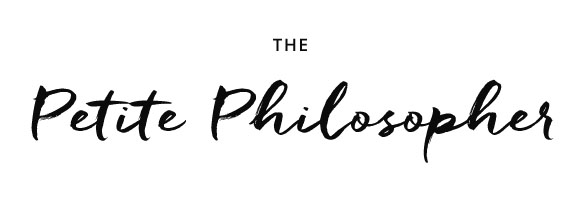“Dogmatism and skepticism are both, in a sense, absolute philosophies; one is certain of knowing, the other of not knowing. What philosophy should dissipate is certainty, whether of knowledge or ignorance.” – Bertrand Russell
Four years ago I took a chance. Having a history background, I was able to teach a wide range of courses, from Challenge and Change in Society, to World Religions. It was after teaching World Religions for several years (with several issues I won’t get into), I wanted a change. I saw that the Ontario curriculum had a philosophy course, so I asked my department head if we could get it offered at our school. I am so glad that my department head heard me out, because I have been teaching the course ever since, and it has changed my life.
Prior to teaching philosophy, I hate to admit this, but I had no formal education in the subject; I just liked to think. Reading over the curriculum and planning the course from scratch was a challenge, but also one of my personal successes. To this day, there is no other course I am prouder of than Philosophy. The curriculum is really open-ended, and focuses on teaching students the “big questions”. From there, I formed four major units. In What is a Person? I teach my students about emotion, language, perception, identity and self, free will, and the static versus dynamic self. For our second unit, What is the Meaning of Life? we explore happiness as meaning, religion, God, atheism, nihilism, and death. What are Good and Evil? focuses mainly on ethics and political philosophy, while our final unit, What is Beauty? is all about aesthetics (my personal favourite). What I love most about philosophy is that it’s about not being certain of anything. It’s wondering, questioning, and seeking out new ideas and perspectives to gain a greater appreciation of life.
After lesson planning and teaching the course for the first time, I came to realize that philosophy is so incredibly important because it challenges us to confront our own beliefs, and it allows for mutual understanding and respect. When we ask questions about aesthetics, metaphysics, and ethics, we become more in touch with ourselves and the universe. The world needs more philosophy.
Philosophy can be intimidating, especially when it comes to logic and reasoning skills, but I think anyone can be a philosopher, as long as you like to think critically. I was once told by a professor from the University of Windsor that the high school philosophy course is one of the best courses to prepare students for the world outside of secondary school because it doesn’t teach them what to think, but how to think.
By “doing” philosophy I hope to come to understand myself and the world around me better. I find philosophy very humbling. I love sharing my newfound passion with my students, in which we encourage each other to think critically about ourselves and life in general.
Want to start a philosophy course at your school, or encourage philosophical thinking with your own children? Here are some great resources to start:
The Philosophy Book | not only is this book aesthetically pleasing, but it does a great job breaking down the most famous ideas from philosophers throughout history.
The Big Questions: A Short Introduction to Philosophy | a fantastic book that is comprehensive, to the point, and offers many discussion questions for students.
Theory of Knowledge IB | created for the IB program, this book helped me with my lesson planning.
Teaching Children Philosophy | a comprehensive website that focusses on using children’s books to teaching philosophy, complete with questions to ask your kids.
PLATO | a great resource to kick-start any philosophy program, with lesson plans, ideas, and publications.
Philosophical Films | a good list of films with discussion questions.
I also recommend the following children’s books: Q is for Question: An ABC of Philosophy, Is Nothing Something?, What is Humanism? and Other Big Questions





For those who are curious, I bought my Plato shirt here.






